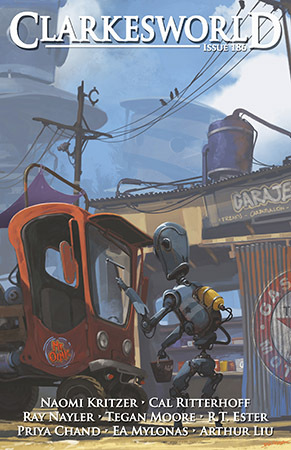Rachel S. Cordasco's Blog, page 15
March 23, 2022
Review: The Agents by Grégoire Courtois
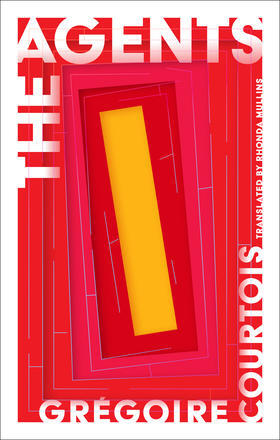
I recently reviewed The Agents by Grégoire Courtois, translated from the French by Rhonda Mullins, for Strange Horizons.
Here’s an excerpt from the review:
This question, coming near the end of the French surrealistic science fiction novel, The Agents, encapsulates the entire two-hundred-plus-page journey that is this strange, hypnotic text. While its implications and lessons are rich and laden with meaning, its characters, setting, and action are all spare, stripped down to the bare bones, just like the forgotten skeleton that Agent Laszlo discovers in an abandoned cubicle—a skeleton that changes his life and the lives of everyone in his tower forever.
Read the entire review here.
SFT over the past 5 years
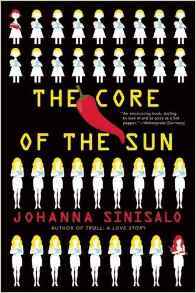
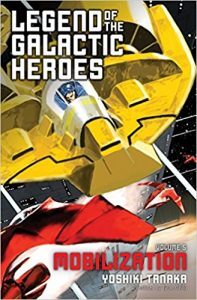
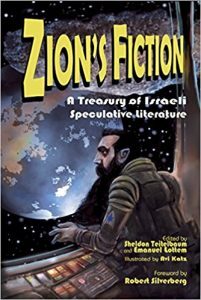
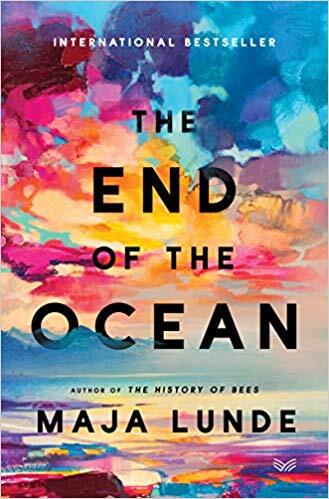
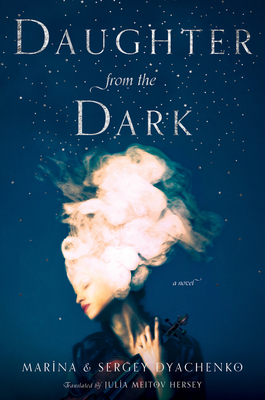
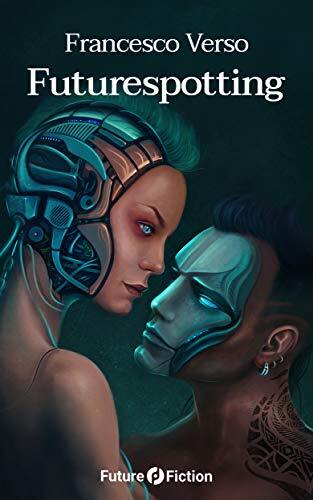
I recently took a look at trends in SFT between 2016 and 2021, and I found some pretty interesting facts:
short-form SFT
Spanish and Chinese SFT are in the top three every yearpeak short SFT (i.e. the highest number published) was in 2019Clarkesworld brings Anglophone readers more SFT than any other zine/journal2017 saw the highest number of unique publishers of short SFT (48 different zines/journals)long-form SFTSpanish SFT is in the top 3 every yearpeak long-form SFT was in 20182018 saw the highest # of novels published2020- highest # of collections2018 and 2019- highest # of anthologies2018- highest # of unique publishers (58)March 16, 2022
Review: Muck by Dror Burstein
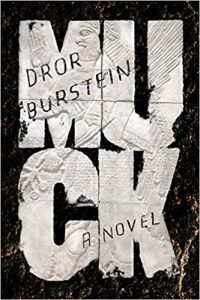 translated by Gabriel Levin
translated by Gabriel Levin
FSG
November 13, 2018
416 pages
grab a copy here or or through your local independent bookstore or library
Originally published in Hebrew in 2016 as טיט, Muck is one of the most original books I’ve read in many years. Slamming together the social, technological, and military circumstances of ancient and modern Jerusalem into a haunting and seamless blend, Burstein retells the Book of Jeremiah masterfully. Kings fly around in helicopters, citizens watch Babylonian armies invading neighboring nations on TV, idols are sold in modern shops. Through it all, Jeremiah, who never asked to be a prophet, tries to warn his family and the larger community that the Jews of Judah will be driven into exile and there’s nothing they can do to stop it.
This question–why prophecy when what’s foretold will happen anyway?–haunts Jeremiah. Only near the end of the book, after he’s been alienated, tortured, and forced into hiding, does he understand that “his fate, his abandonment were never matters of chance, they were the whole point, so that people would be able to see from then on that a prophet had been sent to warn them but to no avail–he was forced to operate on his own, alone, cast out” (388).
Back to the beginning, though. Jeremiah is a struggling poet who wants to critics to write good reviews about his first book. The main critic in town, though, is a bit…intense and beats him with his own keyboard before driving him out into the street. When Jeremiah returns to his parents’ house, though, he notices a new star in the sky–a dead red giant whose light has just reached Earth. It’s then that he dozes and hears a voice telling him that he has been “appointed…a prophet to the nations.” Suddenly, he remembers that a decade before that, he had heard a voice also trying to tell him something, but he had ignored it.
One of the most beautiful aspects of this book (similar to Shimon Adaf’s Sunburnt Faces) is the delicacy and subtlety with which Burstein weaves in the words of the angel who speaks to Jeremiah. Without quotation marks, emerging almost organically from the sentence before, the words of the angel materialize on the page as they do in Jeremiah’s head. He tries to ignore these words once more but finds that he can’t.
Jerusalem at this point is a thriving city, filled with professionals, shops, computers, televisions, and of course the king of Judah and his retinue. Everyone knows that the king of Babylonia (Nebuchadnezzar) is moving on surrounding nations, but they ignore what they hear on the news when it comes to Judah being threatened. Thus begins a long, slow decline, punctuated by King Jehoiakim committing suicide by throwing himself into a stadium-sized bowl of hummus–all because he dreads that Nebuchadnezzar will find out that he stopped paying taxes. King Jehoiakim was already paying taxes to Egypt and…maybe Babylonia wouldn’t notice? But they do, and just as Nebuchadnezzar rolls up to Jerusalem in his black sedan, the king jumps.
His son has been called back to Jerusalem from his life as a classical pianist in Vienna, and this new king (Jehoiachin) readily surrenders to Nebuchadnezzar. As a gesture of mercy (Nebuchadnezzar says), he will only make the professional class come to Babylonia, along with a bunch of treasure. Everyone else can stay. The exiles then board their appointed trains and ride off to make a new life in a new nation. Jeremiah’s parents are among the exiles, as his father is a retired physician. Jehoiachin is appointed the “king in exile” and accompanies these people into Babylonia.
The next in line to the throne is Mattaniah, Jeremiah’s childhood friend and a man who has done everything in his power to distance himself from the royal family. He steps up to become king, though, when it’s clear that no one else can or will. Mattaniah (or Zedekiah, as Nebuchadnezzar calls him) manages Jerusalem’s decline. Royal life has warped his priorities and values, and his attempt to gather up other nations to oppose Nebuchadnezzar (for no discernible reason other than pride) seals Jerusalem’s fate. This time, exile will be total and destruction will reach every corner of the city.
Through all of this, Jeremiah warns his parents, strangers, and anyone who will listen that Judah will fall and bring misery to the Jewish people. Speaking in a Biblical style earns Jeremiah hostile looks but no one believes him. Nonetheless, he does as the angel tells him: buying a jug and destroying it in a public place, burying things in the sand, speaking his prophecy all over the city. We spend a lot of time in Jeremiah’s head, then in Mattaniah’s, and each detail of the city and its decline are detailed patiently and thoroughly. Even minor characters are given center-stage time, if only for a page or two. It’s almost as if Burstein’s narrator is Jeremiah’s angel, able to move around the city and into and out of characters at will, capable of taking everything in.
Gabriel Levin’s skillful translation never once makes you remember that this was originally written in Hebrew–a language totally different from English (Hebrew, you might already know, is written and read from right to left). Like Muck, the Hebrew language itself is the product of the past and the present, with modern Hebrew (as spoken in Israel today) using Biblical Hebrew as its basis.
I highly recommend Muck to all of you reading this review. It’s great if you’re already interested in the history of the Middle East, or Biblical history, but you’ll enjoy this book even if you just love reading beautiful prose. You can thank me later.
March 12, 2022
The Absurd, Ironic World of Pierre Boulle
This is part of a series on French author Pierre Boulle.
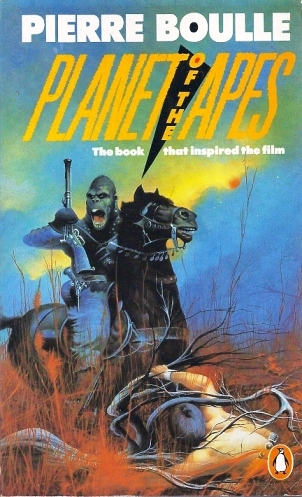

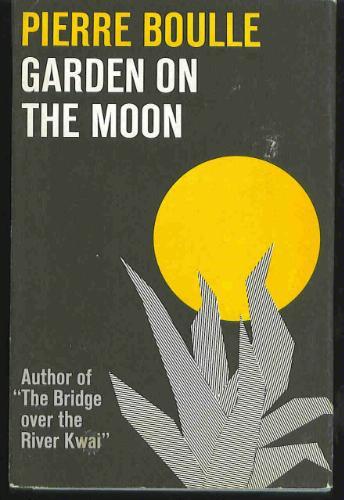
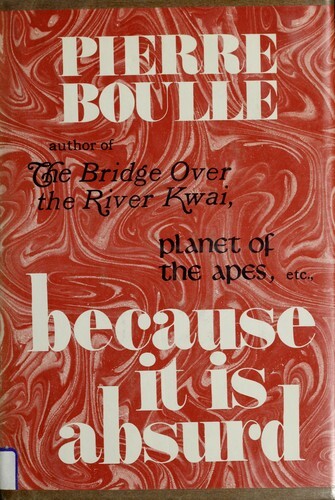
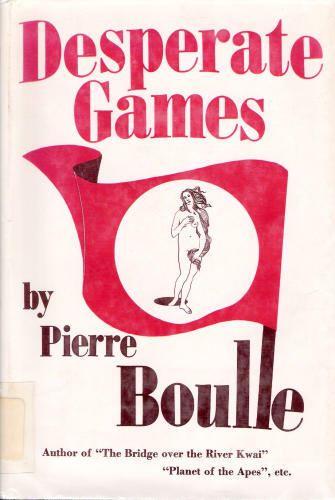
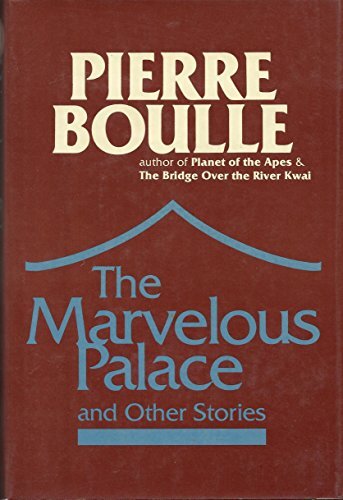

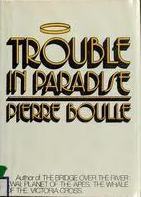
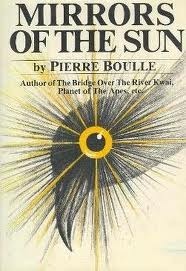
You learn a lot about an author when you read nine of his books in the space of two months. When that author is Pierre Boulle, you’re sure to be intrigued and entertained. A man writing about the issues of his time, Boulle explores the connections between science and religion, the pressures of technology on the environment, the violence simmering just under the surface of human civilization, and the 20th century quest to finally reach the moon. Through it all, Boulle shows how some seemingly-perfect solutions to the world’s problems, taken to their logical conclusions, become disastrous.
Boulle focuses on these particular themes to help him explore the ironic, absurd, and sometimes pathetic situations in which humans find themselves. His most important theme, though, is the reconciliation of science and religion. Though this argument has been going on since humans first began to investigate their surroundings (i.e. long ago), Boulle examines it in the mid-20th century context of theoretical physics and the work of French Jesuit scientist and philosopher Teilhard de Chardin. Though he wasn’t a practicing Catholic, Boulle nevertheless continued to be interested in theological questions and their impacts on modern secular society and science. By the mid-20th century, physics was concerning itself with the infinitesimally small (particles) and the unimaginably large (cosmic phenomena), leading some, like the astrophysicists in Boulle’s The Good Leviathan and Trouble in Paradise), to posit a quasi-religious component to the contemporary study of physical laws. In Leviathan, Boulle has the physicist Monsier David quote from Sir Arthur Eddington’s The Nature of the Physical World (1928) that “ ‘a serious consequence of the abandonment of the principle of causality is that it leaves us without a clear distinction between the natural and the supernatural.’” Thus as theoretical physics moves away from testable hypotheses, the physical nature of our world becomes, once again, inscrutable. David, though, sees this as the next step in humanity’s understanding of the universe. In Trouble in Paradise, the Holy Spirit comes down to Earth and chooses to inhabit, out of billions of humans, the body and mind of an astrophysicist. In this way, the Holy Spirit learns about how scientists are finding some phenomenon so marvelous and inexplicable that they can only find a spiritual explanation. Even the doctors and scientists in “The Miracle,” after ruling out all “natural” causes for a blind man regaining his sight, accept that a miracle must have occurred. Ironically, it’s the priest who called on God to perform that miracle who just can’t bring himself to believe it.
Scientists hold a special place in Boulle’s works, perhaps because he admires their determination to unlock nature’s secrets even as they sometimes make catastrophic mistakes that impact their fellow humans. This is most clearly shown in Desperate Games, where the world’s top scientists and thinkers establish a world government and proceed to end hunger, poverty, inequality, and other issues that plague humanity. The problem, which they didn’t foresee, is that without any problems to solve, people become depressed, even suicidal. The scientists’ attempts to entertain the world population quickly become grotesque and brutal—the opposite of what the scientist-leaders had intended. The same goes for Mirrors of the Sun, in which the French government sinks resources into a massive solar power plant, thinking that it will solve the country’s energy needs and heal the environment. Instead, the establishment of the plant leads to an ecological and humanitarian disaster, due to (once again) unforseen issues of animal waste and insect carcasses interfering with solar absorption. As a spiritual leader in the fantastical collection The Marvelous Palace tells the narrator, “When men of energy are stirred by creative passion, the always carry to a happy conclusion the task they’ve set themselves, no matter how arduous and difficult; they triumph over every obstacle and refuse to be discouraged by the criticism leveled against them…[But] once they’ve attained their ultimate aim, the work brought to a close by virtue of their intelligence, their labor, their desperate drive, is revealed to be useless and derisory because one little detail has escaped their genius” (37). Boulle underscores this idea in “The Age of Wisdom,” a story about two competing factions of scientists (the worshipers of the particle and the followers of the wave) who think they can “fix nature.” Both factions undertake secret research, not realizing the other is doing the exact same thing. The goal: to balance the temperature around the globe, thus warming the poles and cooling the equator. Apparently neither side thinks through the resulting destruction that this will cause, and since both factions are doing it, well…nothing good comes of it.
Garden on the Moon allowed Boulle to examine in more detail the inner-workings of a determined scientific mind. Drawing on the life and work of Nazi, and then American, rocket-scientist Wernher von Braun, Boulle showed how an engineer named Stern, obsessed with landing humans on the Moon and Mars, was willing to work for the Nazis and then the Americans just to get the funding he needed for his research. Even as he was developing rockets that the Nazis wanted to use to hit the US and England, Stern was figuring out how to get those same rockets to escape the Earth’s gravitational pull and land on the Moon. Working for the US government after World War II enabled him to continue his research, where he became locked in a close race with Soviet scientists. As in Desperate Games, Boulle imagines that the top rocket scientists working for the Nazis scattered to different countries after the war but kept in touch and shared their findings. Thus the space race in Boulle’s world is not just between the US and USSR (though they’re the farthest ahead), but also France and Japan. It’s Japanese rocket scientist Kanashima, though, who takes scientific dedication to a whole new level, sacrificing his own life to give Japan the chance to win the space race and make history.
In many of these novels and stories, Boulle foregrounds the religious imagery inherent in grand technological structures. In Garden on the Moon, Dr. Stern finds himself “shaking off the romantic images that the Peenemünde staff was only too inclined to evoke in connection with rockets: obelisk, church steeple, cathedral spire” (16). In another instance, he has a religious experience while contemplating the satellite his team is about to launch into space: “the satellite in its dazzling gold plate had been carried onto the pad by the admiral himself. Opening its case, he raised the fragile instrument into the air at arm’s length, like a priest consecrating the Host” (137-38). The immense nuclear-powered oil tanker in The Good Leviathan is described in terms of a cathedral, and when the water it sprays on environmental protestors seems to heal the sick and infirm, the tanker becomes a pilgrimage site.
For Boulle, then, scientific and technological progress can never escape (and might even encourage) the human craving for the spiritual. Furthermore, we should be skeptical of scientists and other experts who declare that they have found The Solution to a particular problem. Such solutions, when taken to their logical conclusions, often have disastrous consequences. And finally, the ironies and absurdities Boulle highlights should make us both more tolerant and intellectually critical of one another, if we hope to find those solutions that will make the Earth a better place.
March 8, 2022
Review: Mirrors of the Sun by Pierre Boulle
This is part of a series on French author Pierre Boulle.
 Flammarion, 1982
Flammarion, 1982
translated by Patricia Wolf
Vanguard Press, 1986
183 pages
The novel’s original title, Miroitements, means “shimmer,” which better reflects (pun intended) the core of this story: that something bright and shiny may actually be a dangerous distraction.
As in The Good Leviathan, Boulle takes up one of the major environmental issues that, even in the 1970s and 80s, stirred up controversies and heated arguments among environmentalists and their opponents. While Leviathan explored questions surrounding nuclear power and oil, Mirrors of the Sun focuses on solar energy and its many potential benefits. Here, France has elected its first self-proclaimed “ecologist president,” whose main goal (to the detriment of the country’s other problems) is to build the most glorious solar power plant ever conceived of by humans. If that sounds a bit dramatic, you’re right–President Blondeau is not just excited to build this plant, or even jubilant. He’s practically rapturous about it. Indeed, Boulle uses words like “rapture,” “prayer,” “divine,” and other religious terms to describe the feelings of Blondeau, his wife, and their government ministers when they finally see Helios (the power plant) in action for the first time. The sun-worship, though, had begun even on the campaign trail:
The French people were fed up with politics and dreary debates on the responsibilities of government and fiscal stability. They were ready for the age of ecology. Eager for light and for an orderly arrangement of their planet, they embraced Blondeau’s cult of the sun as the symbol of these virtues. Thanks to the candidate’s natural eloquence and some impressive demonstration models … presented on television, the public gradually came to adore the sun, the new god, the one power capable of putting to flight the dark demons of industrial society. (49-50)
The Helios plant opens to great fanfare and the newly-elected president is ecstatic. Acres and acres and acres of “heliostats” have been constructed in a particularly sun-filled area of Provence, and things seem great. But remember: this is Boulle, so we can see the train wreck coming a mile away. How that wreck will happen, though, is what keeps us reading.
The first hint that things aren‘t great comes just as the plant starts really gearing up. Multiple species of birds, attracted to the mirrors, start flying around, entranced by the shimmering light and their own reflections. One quite distracted bird gets too close to a boiler and falls dead. Only one of the ministers sees this happen, and though he doesn’t mention it to anyone, he senses that it’s just the first in a series of ecological disasters.
Not surprisingly, more and more birds start hanging around the solar plant, soiling the mirrors with their waste, casting shadows, dropping insect carcasses, and generally screwing up the awesomeness that is Helios. That’s a problem, but an even bigger problem comes when the fishermen and fishmongers in the area start noticing that the water is looking gross and fish are floating around dead with pink spots on their bodies. It turns out that the detergents the plant has been using to clean the mirrors are polluting the area’s waterways.
And if that’s not bad enough, the birds are becoming a serious problem, so after much arguing and brain-wracking, the president and his advisers decide that it must be done: the birds must be exterminated. Poachers are encouraged and even paid by the government to shoot as many birds as they can, and poison is placed in areas where birds tend to eat. This wholesale slaughter of the area’s multiple bird species breeds another problem: now the insects are taking over. Without birds eating them, various insects are now soiling and shading the mirrors, leading to a massive reduction in energy output, just as the plant was starting to generate its own energy. What to do? Again the president hems and haws and wails and whines and ultimately agrees with his advisers: the insects have to go. After all, the amount of detergent that has to be used just to clean the bugs off of the mirrors is astronomical.
I think you can see where this is going. The extermination of the bird population leads to an extermination of the bug population; the detergents that have been pouring into the waterways have killed off most of the fish, which means that much of the wildlife has either died or fled. The humans who rely on the fish and animals must then decide if they want to leave the area or work as mirror-washers at the plant (many choose the latter).
The Blondeau government does its best to cover up all of this ecological destruction, but the mass slaughter disgusts one minister so much that he resigns and organizes an opposition party to promote nuclear power over solar. Helios turns out to have been a more destructive, more expensive, more destabilizing presence than anyone had imagined. Blondeau becomes so distraught by the devastation that he allowed in the name of the solar plant that he comes to a tragic end.
Once again, Boulle takes what seems like a great idea to its logical conclusion. Nothing, he suggests, is the solution to oppressive industrial work, environmental damage, and the continuous demand for energy. Putting faith in a single kind of plant can produce more problems than it solves.
March 7, 2022
Interview with Cora Buhlert

A big thank you to Cora Buhlert for interviewing me about Out of This World as part of her “Non-Fiction Spotlight”!
Read the interview here.
SFT on Words Without Borders

The lovely people at Words Without Borders published my recent essay on why “We Need More Speculative Fiction in Translation.”
Here’s an excerpt:
“After all, speculative fiction (science fiction, fantasy, horror, magical realism, etc.) is and has been written around the world since those genres emerged. The rise of Anglo-French science fiction at the turn of the twentieth century changed what Anglophone critics saw as “science fiction” and in turn influenced the genre throughout the world, due in part to colonialism and market domination. Around 2000, though, SFT shifted into high gear. Not only was more SFT being published every year, it was also being studied by Anglophone scholars who, in turn, were no longer so discouraged from writing about SF within the academy. Just since the start of the twenty-first century, for example, we’ve had collections of essays like Dale Knickerbocker’s Lingua Cosmica: Science Fiction from Around the World; Ian Campbell’s Science Fiction in Translation: Perspectives on the Global Theory and Practice of Translation; Lars Schmeink and Ingo Cornils’s New Perspectives on Contemporary German Science Fiction; and Zachary Kendal, Aisling Smith, Giulia Champion, and Andrew Milner’s Ethical Futures and Global Science Fiction. Kevin Reese’s Celestial Hellscapes: Cosmology as the Key to the Strugatskiis’ Science Fictions has introduced many young Anglophone readers to two of the greatest Russian SF authors who ever put pen to paper, while my own Out of This World: Speculative Fiction in Translation from the Cold War to the New Millennium (which includes chapter introductions from a variety of talented translators, editors, and authors) documents the SFT that has been available to English-language readers since the 1960s (spoiler: there’s a lot of it).”
March 3, 2022
Review: Trouble in Paradise by Pierre Boulle
This is part of a series on French author Pierre Boulle.
 Julliard, 1979
Julliard, 1979
translated by Patricia Wolf
Vanguard Press, 1985
188 pages
I’m not really sure what I just read, but I’ll do my best to write about it.
You know how I’ve been saying on twitter (@Rcordas) that Boulle’s work is wild? Well, Trouble in Paradise makes the rest of his stuff look tame. That’s the first thing.
Second thing: if you’re reading this review and you’re an observant [insert religion here], you might be horrified and insulted by this book. Like, really insulted. If Boulle hadn’t already stopped being a practicing Catholic by the time he wrote Trouble, he likely would have been asked to leave the religion and never come back.
Don’t think, though, that there’s anything lewd or whatever in the story–it deals almost strictly with theological questions. And if you’re like “wow that sounds REALLY boring,” believe me, it’s anything but. In a nutshell: the Holy Spirit and the Virgin Mary come down to Earth in order to see what they can do about resolving the intense dispute between God and Jesus in Heaven. And then things get…complicated.
Let’s begin with the seance, which opens the book (you read that right). A high-society lady, the president of France, an astrophysicist, a priest, and a reverend are all dabbling in some psychic research for fun. This was really a thing in the late-nineteenth century in some Western countries. Anyway, they manage to summon none other than the Holy Spirit (who takes up residence in the astrophysicist’s body) and the Virgin Mary herself, who sits politely in a chair and learns French in about three seconds.
As Mary and the Holy Spirit explain to the shocked seance participants, stuff’s been going down in Heaven. The shift over the centuries on Earth away from focusing on God to elevating Jesus has made God resentful and Jesus arrogant. Mary and the Holy Spirit have been caught in the middle as Jesus tries to dethrone God (literally- God sits on this cool throne and Jesus wants to sit on it instead).
The group hatches a plan to influence the Catholic Church in France (and potentially worldwide) to clarify that the Trinity is composed of three equally-important figures. Mary, whom people fall in love with instantly, is offered a government role dealing with women’s issues. She works her way up to President of France and begins to cultivate an even more devoted group of followers. Meanwhile, the Holy Spirit intervenes here and there to help Mary on Earth and to try and settle the argument between God and Jesus in Heaven. As the Holy Spirit explained earlier, what happens on Earth has influenced the hierarchy in Heaven for many centuries, so as Mary’s popularity increases with humanity, it also rises with the angels. The astrophysicist even influences the Holy Spirit, such that the latter embarks upon a course on the planets, stars, and other cosmic phenomena. And then Mary starts to wonder, if she’s called the “Mother of God,” why she isn’t sitting on that cool throne….
As in The Good Leviathan, Boulle brings up the writings of real-life French Jesuit priest, scientist, and paleontologist Pierre Teilhard de Chardin, who blended science and Christianity in his writings and earned the resentment of some of his colleagues. At a salon in which multiple religious leaders are brought together to discuss the nature of God, the Holy Spirit (in the body of the astrophysicist) explains what he thinks about reconciling Christianity and evolution:
The synthesizing effort in Teilhard’s work impressed me as a splendid artistic production that deserves applause. To succeed by talent, by artistry–there’s no other word for it–in juxtaposing two such contradictory currents of thought as Christianity and the science of evolution; to give a reasonable appearance of logic to a single theory combining the rational and the irrational, discipline and dream: this is an intellectual masterpiece, the product of a mind that strains and twists as it seeks out the impossible answer to a preposterous problem and winds up creating this patchwork solution in a flash of genius. A feat similar to, but even more prodigious than the association in one God of two persons as unlike as the Father and the Son. Marvelous synthesis indeed, but chiefly a literary monument…. (100)
Trouble in Paradise is not so much an exploration of a theological question (the nature of the Trinity) but instead an attempt at shifting perspective when it comes to humans and spiritual beliefs. Here, Boulle transforms the figures of God, Jesus, the Holy Spirit, Mary, and the angels into something akin to the bickering, resentful, and vengeful Greek gods. In other words, Boulle humanizes these figures and imagines how humankind might influence them, rather than the other way around. In this way, Boulle isn’t necessarily trying to offend but simply to take things (as he does) to what he thinks are their logical conclusions.
We’ve already seen Boulle tackle religious questions in his absurdist, ironic way in The Good Leviathan, “When the Serpent Failed,” “The Holy Places,” and “The Miracle.” Astrophysicists appear in some of these stories, usually to explain that mid-twentieth century physics has wrapped back around from the natural world to larger cosmic questions. The micro- and macro-universe push scientists to think beyond the confines of Earthly phenomena in order to find an explanation for the cosmos itself.
Trouble in Paradise is just under 200 pages and quite the entertaining read, so go read it. It’s wild.
Out This Month: March
“Commencement Address”
by Arthur Liu, translated from the Chinese by Stella Jiayue Zhu (Clarkesworld, March 1)
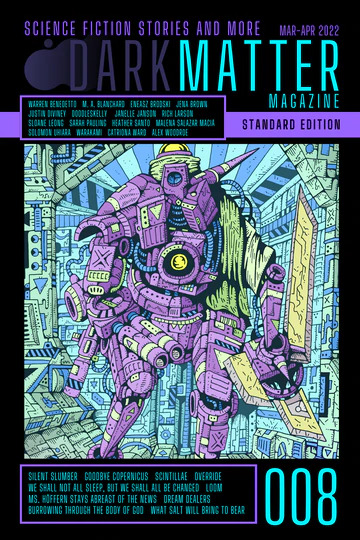
 “Silent Slumber” by Malena Salazar Maciá, translated from the Spanish by ? (Dark Matter, March/April)
“Silent Slumber” by Malena Salazar Maciá, translated from the Spanish by ? (Dark Matter, March/April)
NOVELS
 Scattered All Over the Earth by Yoko Tawada, translated from the Japanese by Margaret Mitsutani (New Directions, March 1)
Scattered All Over the Earth by Yoko Tawada, translated from the Japanese by Margaret Mitsutani (New Directions, March 1)
ANTHOLOGIES
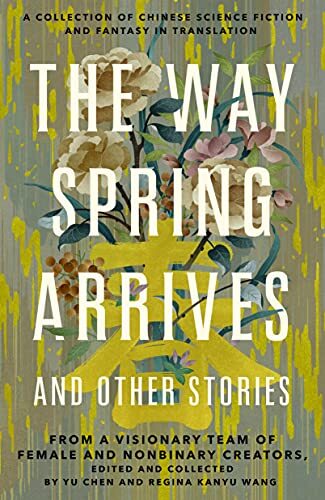 The Way Spring Arrives and Other Stories:
A Collection of Chinese Science Fiction and Fantasy in Translation,
edited by Yu Chen and Regina Kanyu Wang (Tordotcom, March 8)
The Way Spring Arrives and Other Stories:
A Collection of Chinese Science Fiction and Fantasy in Translation,
edited by Yu Chen and Regina Kanyu Wang (Tordotcom, March 8)
In The Way Spring Arrives and Other Stories, you can dine at a restaurant at the end of the universe, cultivate to immortality in the high mountains, watch roses perform Shakespeare, or arrive at the island of the gods on the backs of giant fish to ensure that the world can bloom. These stories have never before been published in English and represent both the richly complicated past and the vivid future of Chinese science fiction and fantasy. Time travel to a winter’s day on the West Lake, explore the very boundaries of death itself, and meet old gods and new heroes in this stunning new collection.
March 2, 2022
Review: The Marvelous Palace by Pierre Boulle
This is part of a series on French author Pierre Boulle.
 Flammarion, 1976
Flammarion, 1976
translated by Margaret Giovanelli
Vanguard Press, 1977
187 pages
The original title for this collection was Histoires perfides, which literally means “false or treacherous stories.” Personally, I like the English title because it is mellifluous (the very reason why the phrase was chosen as the name for the prison in the eponymous story). Nonetheless, the original French title tells us at the outset what we should expect to find within these pages. And boy does good ol’ Pierre deliver.
Each of these six stories is told to the narrator by an old man from the fictional “Kingdom of Shandong,” which we’re told lies somewhere in the Himalayas. Given that Boulle spent many years in the Near East on rubber plantations and then as a spy for the French resistance during World War II, it’s likely that he drew on stories he heard there for some of these “false” tales. You might also call them fantastical tales or fables.
“False” works on a number of levels in this collection. First, the narrator tells us that he deliberately seeks out this centenarian storyteller in order to inspire that narrator in his writing career. The images of princesses and ornate penitentiaries, obscure religious practices and strange transformations, help the narrator break out of his writer’s block. Second, the narrator constantly winks at the reader with asides about how some of these stories must be tall tales or at least stretched almost to the breaking point. Indeed, the narrator knows that the storyteller knows that the narrator knows that these stories might be completely made up. Still with me? Good.
Thus this is a collection of stories about stories and how they’re told. It could have been called “The Meta-lous Palace” (yeah I know. That was terrible). If you’ve read Boulle before, you’ll recognize his signature style in the very first tale, “The Royal Pardon.” Here, we learn about the Queen of Shandong who, it was reputed, was fair and tended to pardon convicts if the evidence against them wasn’t solid. In characteristic Boulle fashion, though, expectations are upended when the Queen decides to go through with one particular execution that everyone believed she would stay. Turns out that her son needed a new heart, and the man who was to be executed would provide a much-needed replacement. This man is pardoned at the last minute, though, because another heart is found in a body that just happened to be found near the house of the mother whose son was to be executed. Is Boulle saying she had something to do with a scheme to spare her son? Perhaps. Cue Boulle wink-wink-nudge-nudge here.
The eponymous story, though, is also the best of the collection (to my mind). It’s here that Boulle’s narrator introduces the “cult of Doubt”–the storyteller’s religion and employer, since he is a “lay priest.” This cult comes up throughout the rest of the collection and stands as an interesting counterpoint to real-world religions, where belief, more than doubt, is encouraged. But back to the story. The “marvelous palace” is the euphemism that the ministers of the Kingdom of Shandong land on for the planned penitentiary and execution space that they hope will become a tourist attraction. And here comes Boulle to tell us why this major project will fail; as the old man explains,
When men of energy are stirred by creative passion, the always carry to a happy conclusion the task they’ve set themselves, no matter how arduous and difficult; they triumph over every obstacle and refuse to be discouraged by the criticism leveled against them…[But] once they’ve attained their ultimate aim, the work brought to a close by virtue of their intelligence, their labor, their desperate drive, is revealed to be useless and derisory because one little detail has escaped their genius. (37)
This palace, you guys…it’s gonna be HUGE. Literally and figuratively. Jewels, dancers, gardens. It’s like a spa but then you’re executed so…not so much like a spa, really. Why do the ministers of Shandong come up with a plan to build this “palace”? It started with the Minister of Statistics who, looking at his graphs and charts, saw that murders had tripled over the past few years. And so, as people have done since statistics were invented, this minister showed the other ministers that, according to projections, murders would get so out of hand that the entire country would be killing itself out of existence in the not-too-distant future. Thus, another Boulle-ism: don’t take one data point and use it to make sweeping changes and plans that might be completely useless or even dangerous. This palace is ultimately built and just before opening day everyone suddenly remembers that…the King recently outlawed capital punishment. Next thing you know, the “palace” is like those stadiums built for the Olympic games that decay and turn into modern-day ruins after the games are over.
The rest of the stories follow a similar course: laws and actions taken to their logical conclusions start to seem monstrous or dangerous, though they seemed perfectly fine at first. The final story of the collection, “The Angelic Monsier Edyh,” is no different. In a take on Dr. Jekyll and Mr. Hyde, a conscientious scientist makes a potion that can turn him into a saintly man. You’d think it would be great, but it really, really isn’t. Each time the angelic “Mr. Edyh” emerges, he rushes around trying to make everyone happier, and in turn makes other people miserable (including the man whose body he inhabits). As the storyteller explains to the narrator concerning Mr. Edyh,
Monsieur, you just can’t conceive how futile it is to make objections to an angel who has taken it into his head to do good. Angels have a logic and dialectic all their own before which one is obliged to lower his lance. (172)
Makes me think of Boulle’s story “When the Serpent Failed” from Because it is Absurd, in which God, the Holy Computer, the serpent, and Jesus realize that Eve must eat the apple and gain knowledge of good and evil, because if she doesn’t, a planet-full of angelic people who don’t know the difference between right and wrong will become the scourge of the universe.
I told you Boulle was fun.

